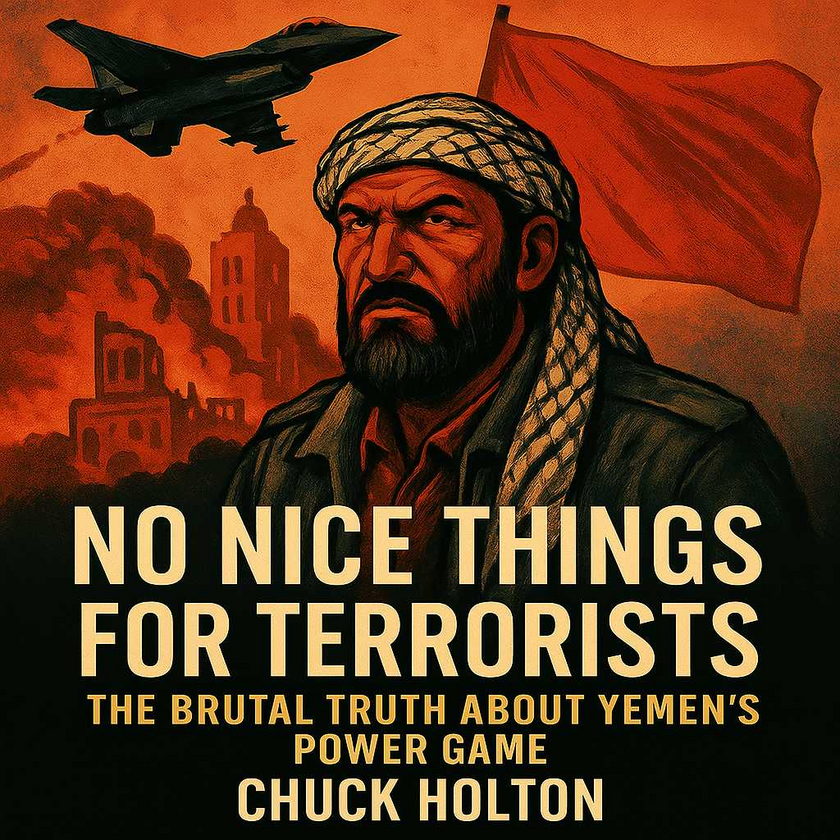
The Middle East is once again lit up by airstrikes, this time in Yemen, where CENTCOM may have just taken out a major Houthi leader—possibly the leader, Mahdi al-Mashat, the Houthis' so-called “president.” But let’s be honest: calling him a president is like calling a pirate captain a shipping executive. There’s a democratically elected government of Yemen, but it’s been sidelined for over a decade. The Houthis? They muscled their way in, took over the populated western chunk of the country, and never looked back.
Now, rumors are swirling that a U.S. airstrike outside the old presidential palace in Sana’a hit a key convoy—possibly carrying al-Mashat himself. If true, that’s a big hit. Almost immediately after the strike, armed Houthis poured out of the palace and set up a perimeter, which is a pretty good clue that someone important got barbequed. CENTCOM’s message is clear: if you mess with global shipping, you're going to pay—big time.
Yemen’s Geography of Chaos
Yemen isn’t just “a giant dirt parking lot,” as I’ve joked before. It’s a dirt parking lot with some fascinating relics of ancient history—palaces and fortresses that remind you this land once mattered. The palace in Sana’a and the ancient fortress at Mount Nuqm are reminders of that past. Sadly, they’re now being used as command centers by terrorists, turning cultural treasures into legitimate military targets. You play terrorist games, you win military strikes.
That fortress on Mount Nuqm? CENTCOM has hit it at least 10 times already. Yes, it’s a shame to see historical sites damaged, but let’s be real: if you don’t want your history turned to rubble, don’t turn it into a war room.
The Truth About “Democracy” in the Middle East
Here’s a little civics quiz: Out of 18 countries in the Middle East, how many have democratically elected governments recognized by the global community?
Answer: Two.
Just Israel and Tunisia.
The rest? Monarchies, figureheads, rigged elections. Countries like Iraq hold elections, sure—but whether those votes mean anything is another story entirely. And the Houthis? They’re not elected. They’re armed thugs with a flag.
Why the U.S. Needs to Hit Harder
Let’s not sugarcoat it—the U.S. response until recently has been tepid. The Biden administration treated the Houthis like a mosquito bite: annoying but not worth a strong response. They lobbed a few bombs at empty warehouses and called it a day.
But now, under Trump’s return to the spotlight, CENTCOM is striking Yemen hourly. It’s a good start—but not enough. When the Saudis went to war with the Houthis, they flew 75,000 sorties in seven years. And still, the Houthis came out stronger. Why? Because sustained conflict—no matter how justified—can rally the very populations it seeks to subdue.
The Houthis are the honey badgers of the Middle East. Bombs don’t scare them. If anything, it fuels their propaganda machine.
Terrorism on the High Seas
Today’s battlefield isn’t just desert and cities—it’s the ocean. The Red Sea, Bab el-Mandeb, the Gulf of Aden—vital arteries of global trade are being threatened. And the Houthis know it. By targeting commercial ships, they’re not just making headlines—they’re disrupting the global economy.
That’s why the U.S. wants the Houthis to attack military ships instead of civilian ones. As absurd as it sounds, if they aim for our destroyers and aircraft carriers (and miss by a hundred miles, as usual), they aren’t blowing up container ships. The strategy? Keep them focused on us, not on trade routes.
You Don’t Get Nice Things
This is the heart of the matter: when you become a global menace, you don’t get to keep your toys. No fancy palaces. No working power grids. No satellite TV. If you harbor terrorists or become one yourself, don’t be surprised when the rest of the world comes knocking—with bunker busters.
It’s not about collective punishment. It’s about moral clarity. The Houthis are not freedom fighters. They are Iranian proxies, funded and armed to destabilize an already broken region. And the people of Yemen, though deserving of compassion, have to live with the consequences of their rulers’ decisions.
Just like protesters who block freeways instead of city squares, the Houthis punish the innocent to make a point. That’s terrorism. And it should be treated as such.
A Fragile Peace?
After the recent strike, the Houthis suddenly floated the idea of a truce—“We’ll stop hitting your ships if you stop hitting us.” That’s not diplomacy. That’s a toddler’s tantrum. And no, we shouldn't buy it. The second we ease off, they'll go right back to drone strikes and missile launches.
So, what now? Keep the pressure on. Hit the power grids. Hit the command centers. Make it impossible for the Houthis to function. When they realize terror doesn’t pay, maybe then—maybe—we can talk.
Until then?
No nice things.
Watch the full video HERE
















